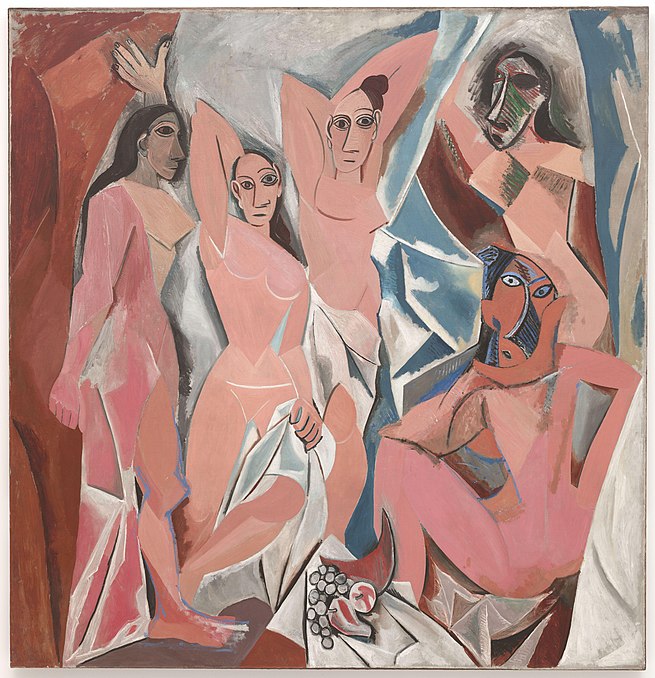
Main Difference
The main difference between Modernism and Postmodernism is that the Modernism is a movement of art, culture and philosophy and Postmodernism is a broad movement that developed in the mid- to late 20th century across philosophy, the arts, architecture, and criticism
-
Modernism
Modernism is both a philosophical movement and an art movement that, along with cultural trends and changes, arose from wide-scale and far-reaching transformations in Western society during the late 19th and early 20th centuries. Among the factors that shaped modernism were the development of modern industrial societies and the rapid growth of cities, followed then by reactions to the horrors of World War I.
Modernism, in general, reflected a departure from traditional forms of art, religion, philosophy, social organization, and daily life which modernist artists felt had become outdated in the new environments of an emerging industrialized world. The poet Ezra Pound’s 1934 injunction to “Make it new!” was the touchstone of the movement’s approach towards what it saw as the now obsolete culture of the past. Modernism also rejected the certainty of Enlightenment thinking, and many modernists also rejected religious belief.Modernist innovations, like abstract art, the stream-of-consciousness novel, atonal (or pantonal) and twelve-tone music, and divisionist painting all had precursors in the 19th century. A notable characteristic of modernism is self-consciousness concerning artistic and social traditions, which often led to experimentation with form, along with the use of techniques that drew attention to the processes and materials used in creating works of art. Modernism explicitly rejected the ideology of realism and made use of the works of the past by the employment of reprise, incorporation, rewriting, recapitulation, revision and parody.While some scholars see modernism continuing into the 21st century, others see it evolving into late modernism or high modernism. Postmodernism is a departure from modernism and refutes its basic assumptions.
-
Postmodernism
Postmodernism is a broad movement that developed in the mid- to late 20th century across philosophy, the arts, architecture, and criticism, marking a departure from modernism. The term has been more generally applied to describe a historical era said to follow after modernity and the tendencies of this era.
While encompassing a wide variety of approaches and disciplines, postmodernism is generally defined by an attitude of skepticism, irony, or rejection of the grand narratives and ideologies of modernism, often calling into question various assumptions of Enlightenment rationality. Consequently, common targets of postmodern critique include universalist notions of objective reality, morality, truth, human nature, reason, science, language, and social progress. Postmodern thinkers frequently call attention to the contingent or socially-conditioned nature of knowledge claims and value systems, situating them as products of particular political, historical, or cultural discourses and hierarchies. Accordingly, postmodern thought is broadly characterized by tendencies to self-referentiality, epistemological and moral relativism, pluralism, and irreverence.
Postmodern critical approaches gained purchase in the 1980s and 1990s, and have been adopted in a variety of academic and theoretical disciplines, including cultural studies, philosophy of science, economics, linguistics, architecture, feminist theory, and literary criticism, as well as art movements in fields such as literature, contemporary art, and music. Postmodernism is often associated with schools of thought such as deconstruction, post-structuralism, and institutional critique, as well as philosophers such as Jean-François Lyotard, Jacques Derrida, and Fredric Jameson.
Criticisms of postmodernism are intellectually diverse, and include assertions that postmodernism promotes obscurantism, is meaningless, and that it adds nothing to analytical or empirical knowledge.
-
Modernism (noun)
Modern or contemporary ideas, thought, practices, etc.
-
Modernism (noun)
Anything that is characteristic of modernity.
-
Modernism (noun)
Any of several styles of art, architecture, literature, philosophy, etc., that flourished in the 20th century.
-
Modernism (noun)
A religious movement in the early 20th century that tried to reconcile Roman Catholic dogma with modern science and philosophy.
-
Postmodernism (noun)
Any style in art, architecture, literature, philosophy, etc., that reacts against an earlier modernist movement.
“modernism|metamodernism|post-postmodernism”
-
Postmodernism (noun)
An attitude of skepticism or irony toward modernist ideologies, often questioning the assumptions of Enlightenment rationality and rejecting the idea of objective truth.
